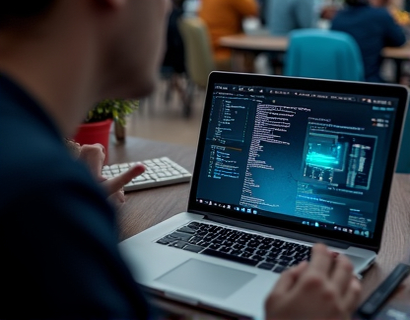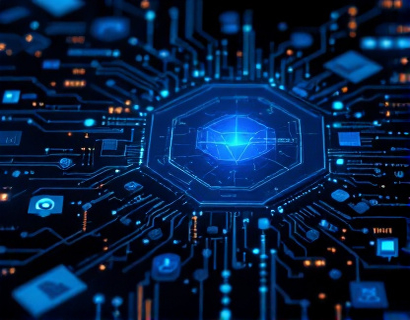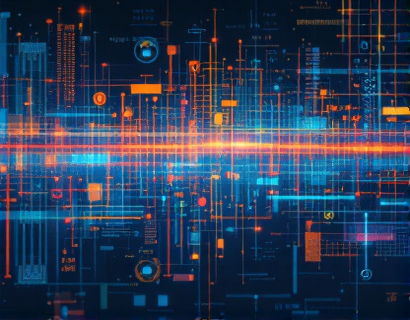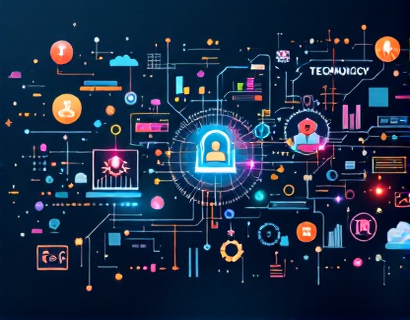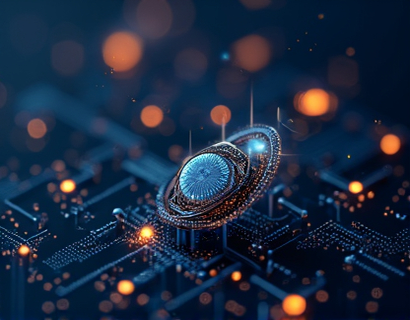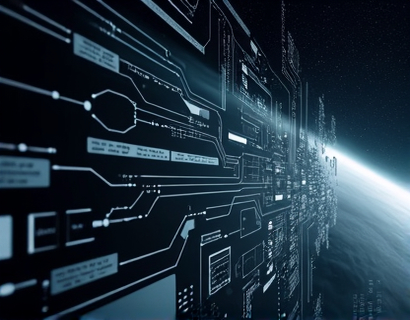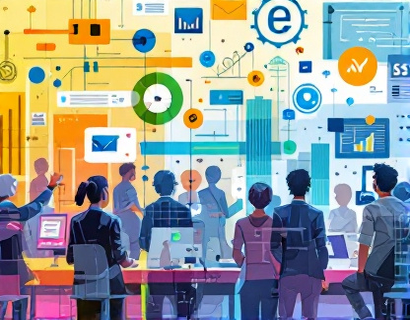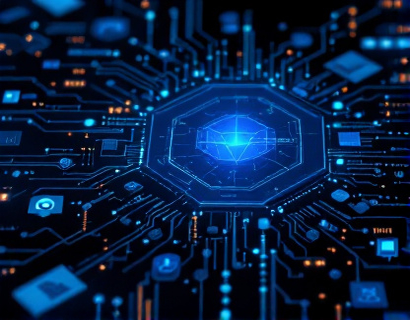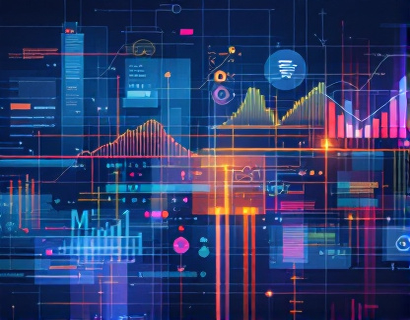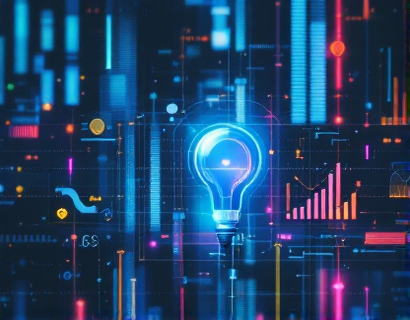Decentralized Productivity: Harnessing AI and Crypto for Enhanced Business Solutions in the Digital Age
The digital age has ushered in a revolution in how businesses operate, with technology playing a pivotal role in transforming traditional workflows into efficient, scalable, and innovative solutions. At the forefront of this transformation are the converging technologies of Artificial Intelligence (AI) and cryptocurrency, which when combined, offer a new paradigm for decentralized productivity. This article explores how the integration of AI and crypto is redefining business solutions, providing a forward-looking perspective for tech innovators and early adopters.
The concept of decentralized productivity involves leveraging distributed networks and decentralized systems to enhance collaboration, security, and efficiency. Traditional centralized systems often face bottlenecks, single points of failure, and high costs associated with maintenance and scalability. Decentralized solutions, on the other hand, distribute tasks and data across a network, reducing dependency on central authorities and increasing resilience.
AI, with its ability to process vast amounts of data, learn from patterns, and make predictions, complements decentralized systems by adding intelligence and automation. When AI is integrated into decentralized platforms, it can optimize processes, automate routine tasks, and provide insights that drive decision-making. This synergy creates powerful tools that not only enhance productivity but also foster innovation and adaptability in a rapidly changing business landscape.
Decentralized Networks and Their Role in Productivity
Decentralized networks, such as blockchain, form the backbone of decentralized productivity. Blockchain technology ensures transparency, immutability, and security by recording transactions across multiple nodes in a network. This distributed ledger technology eliminates the need for intermediaries, reducing costs and increasing trust among participants.
In a decentralized productivity environment, tasks and resources are managed through smart contracts, which are self-executing contracts with the terms directly written into code. Smart contracts automate workflows, ensuring that actions are taken only when predefined conditions are met. This automation reduces human error, speeds up processes, and enhances accountability.
Decentralized applications (dApps) built on blockchain platforms offer a range of productivity tools. For instance, decentralized storage solutions like IPFS (InterPlanetary File System) allow for the storage and sharing of files without relying on central servers. This not only improves data availability and redundancy but also reduces latency, making collaborative work more efficient.
AI in Decentralized Productivity
AI enhances decentralized productivity by providing intelligent solutions that adapt to user needs and optimize system performance. Machine learning algorithms can analyze data from decentralized networks to identify patterns, predict trends, and automate decision-making processes. This intelligence can be applied to various aspects of business operations, from supply chain management to customer service.
One key area where AI shines is in natural language processing (NLP). Decentralized chatbots and virtual assistants powered by AI can handle customer inquiries, provide support, and facilitate communication across different time zones and languages. These AI-driven tools ensure that customer service is consistent and available 24/7, enhancing user satisfaction and loyalty.
AI can also optimize resource allocation in decentralized networks. By analyzing real-time data, AI algorithms can dynamically adjust computing resources, ensuring that tasks are processed efficiently and costs are minimized. This dynamic resource management is particularly beneficial for dApps that handle large volumes of transactions or data.
Enhanced Collaboration through Decentralized Tools
Collaboration is a critical component of modern business productivity. Decentralized tools powered by AI and crypto facilitate seamless collaboration among team members, regardless of their physical location. Blockchain-based project management platforms, for example, allow teams to track progress, assign tasks, and manage workflows in a transparent and secure manner.
Version control systems like Git, when integrated with blockchain, can provide immutable records of code changes, ensuring that all contributions are traceable and verifiable. This transparency builds trust among developers and reduces conflicts. AI can further enhance these systems by analyzing code patterns, detecting potential bugs, and suggesting optimizations.
Decentralized communication platforms built on blockchain can offer end-to-end encrypted messaging and file sharing, ensuring that sensitive information remains secure. AI-driven analytics can monitor communication patterns, identify bottlenecks, and suggest improvements to collaboration workflows. This combination of decentralized and intelligent tools creates a robust ecosystem for team collaboration.
Security and Trust in Decentralized Productivity
Security is a paramount concern in any productivity solution, and decentralized systems offer inherent advantages in this regard. The distributed nature of blockchain technology makes it highly resistant to cyber attacks and data breaches. Since data is stored across multiple nodes, there is no single point of failure that can be exploited.
Crypto assets, such as tokens, can be used to incentivize secure behavior and reward contributors in decentralized networks. For example, a platform might issue tokens to users who validate transactions or contribute to the network's maintenance. These tokens can be traded or used to access premium services, creating a self-sustaining ecosystem.
AI plays a crucial role in enhancing security by detecting and mitigating threats in real-time. Machine learning models can analyze network activity to identify anomalous behavior indicative of attacks. AI-driven security solutions can automatically respond to threats, patch vulnerabilities, and ensure the integrity of the decentralized system.
Scalability and Cost Efficiency
Scalability is a significant challenge for many centralized productivity solutions, as they often struggle to handle increasing loads without compromising performance. Decentralized systems, supported by AI, offer a scalable and cost-efficient alternative. By distributing tasks across a network, these systems can handle large volumes of data and transactions without bottlenecks.
AI can optimize the use of computational resources, ensuring that tasks are processed efficiently and costs are minimized. For instance, AI algorithms can predict peak usage times and dynamically allocate resources to meet demand, reducing the need for expensive infrastructure upgrades. This elasticity is particularly beneficial for businesses with fluctuating workloads.
Moreover, decentralized platforms often operate on a pay-per-use model, eliminating the need for upfront investments in hardware and software. This cost structure makes advanced productivity tools accessible to a broader range of businesses, including startups and small enterprises.
Future Prospects and Challenges
The integration of AI and crypto in decentralized productivity solutions holds immense potential, but it also comes with challenges. One of the primary challenges is the technical complexity involved in building and maintaining decentralized systems. Developers need to have a deep understanding of both AI and blockchain technologies to create robust and user-friendly applications.
Another challenge is the regulatory landscape. As decentralized technologies gain traction, governments and regulatory bodies are beginning to take notice. Navigating the legal and compliance requirements can be daunting, but it is essential for the widespread adoption of these solutions.
Despite these challenges, the future looks promising. As more businesses recognize the benefits of decentralized productivity, the demand for AI and crypto-powered tools will continue to grow. Innovations in areas such as interoperability, user experience, and cross-platform integration will further enhance the capabilities of these solutions.
In conclusion, the convergence of AI and cryptocurrency is paving the way for a new era of decentralized productivity. By leveraging the strengths of both technologies, businesses can achieve higher levels of efficiency, security, and collaboration. As the ecosystem matures, we can expect to see even more innovative applications that redefine how we work and collaborate in the digital age.



